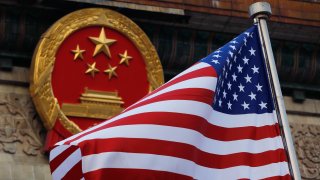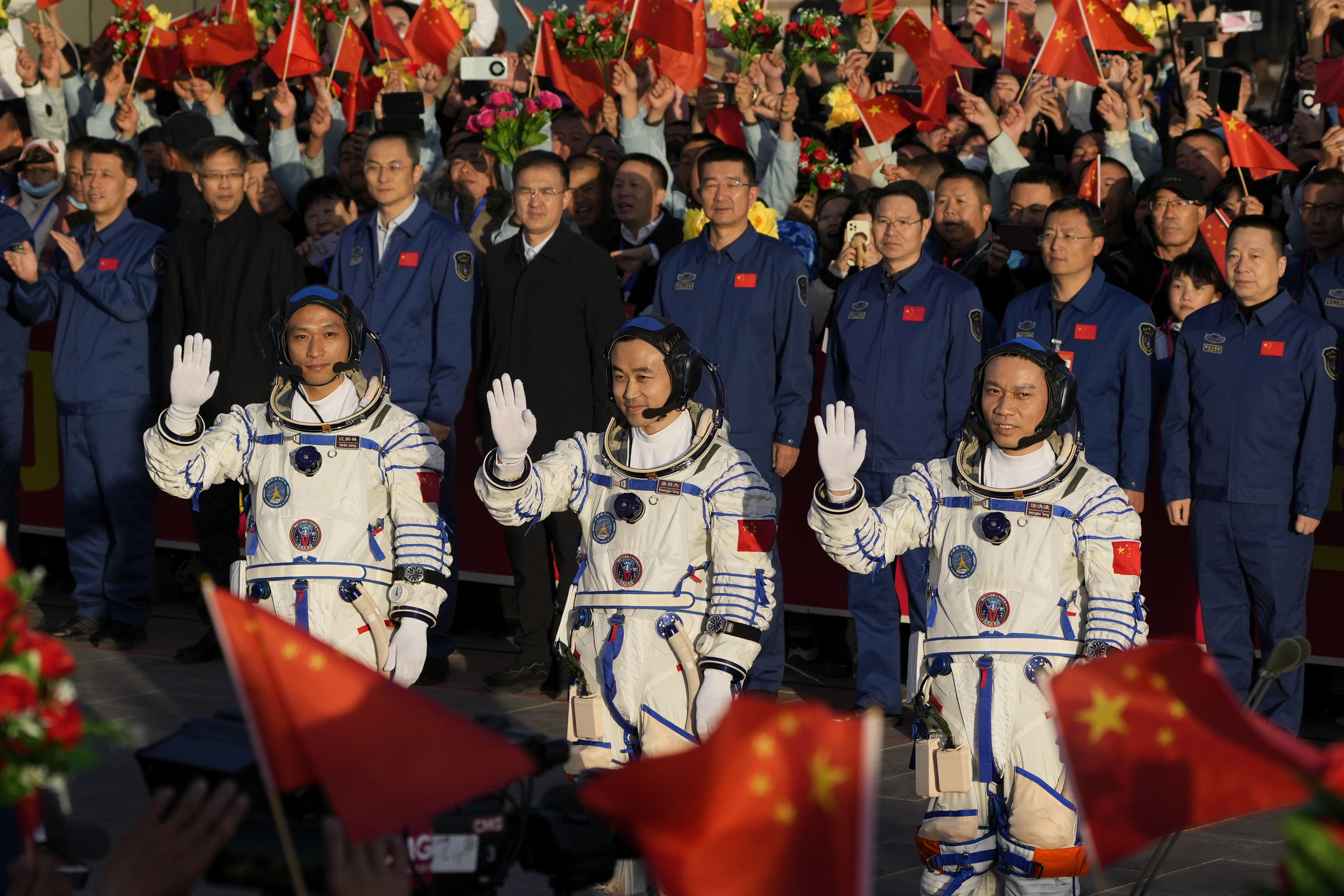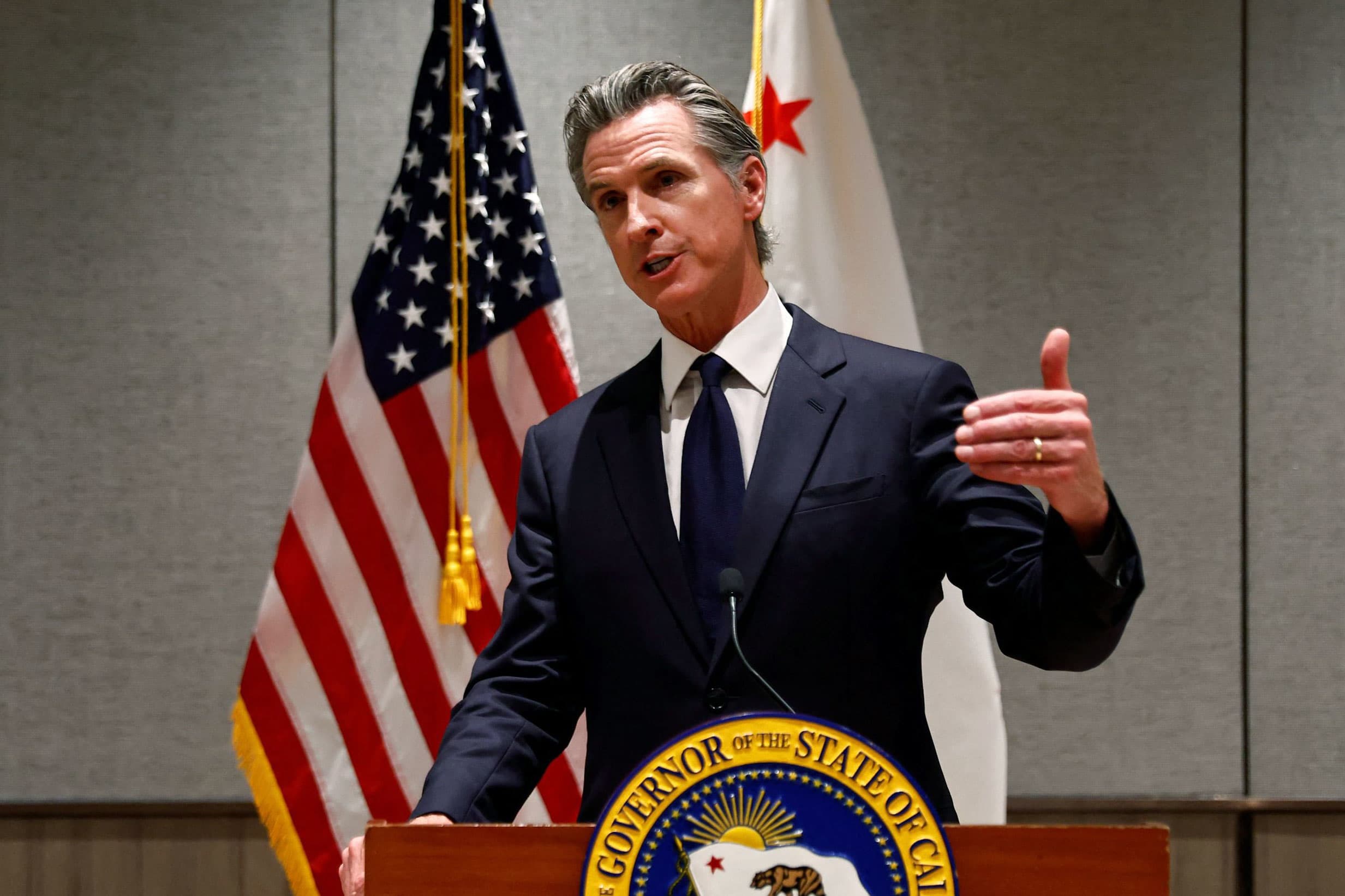
In the midst of two active and potentially world-changing conflicts in the Middle East and Europe, the U.S. is hoping to find at least a small measure of common ground with China as China’s top diplomat visits Washington this week.
Over three days of meetings that begin Thursday, top Biden administration officials, including possibly the president himself, will press Chinese Foreign Minister Wang Yi on the importance of China stepping up its role on the world stage if it wants to be considered a responsible major international player.
Secretary of State Antony Blinken and Biden’s national security adviser, Jake Sullivan, are both expected to urge China to play a constructive role in both the Israel-Hamas and Russia-Ukraine wars. Those meetings could set the stage for a summit between President Joe Biden and Chinese President Xi Jinping next month on the sidelines of an Asia-Pacific Economic Cooperation forum leaders gathering in San Francisco.
The U.S. has been disappointed with China over its support for Russia in the war against Ukraine and its relative silence on the Middle East. In addition, the world's two largest economies are at odds on issues such as human rights, climate change, Taiwan, the South China Sea and North Korea.
Get Boston local news, weather forecasts, lifestyle and entertainment stories to your inbox. Sign up for NBC Boston’s newsletters.
Still, both sides have expressed a willingness to talk with each other since Blinken canceled a planned visit to China in February after the shootdown of a Chinese spy balloon over the U.S., which marked a low point in recent relations.
In the months that followed that crisis, however, Blinken rescheduled his trip and went to China in June. He was followed in quick succession by Treasury Secretary Janet Yellen, climate envoy John Kerry and Commerce Secretary Gina Raimondo.
In addition, Sullivan met with Wang in Malta in mid-September ahead of Blinken's discussions with Chinese Vice President Han Zheng later that month on the sidelines of the U.N. General Assembly in New York. And Blinken spoke just last week with Wang about the Israel-Hamas crisis.
The goal, according to U.S. officials, is to set the stage for another Biden-Xi summit at which the two leaders could explore cooperation or at least easing outright hostility on the most pressing matters of the day.
“Wang Yi’s visit will serve as one of the final touchpoints in laying the groundwork” for the Biden-Xi meeting, said Ryan Hass, director of the John L. Thornton China Center at the Brookings Institute, a Washington-based think tank. “Wang’s meetings in Washington will set the contours for the topics the two leaders will discuss when they meet in November.”
“It opens the possibility of the world’s two largest powers pursuing coordinated efforts to limit escalation or expansion of violence in Ukraine and the Middle East,” he said.
Yun Sun, director of the China Program at the Stimson Center, another Washington think tank, said Wang's trip signals that the Xi-Biden summit is almost certain.
“Wang is here to pave the ground for Xi's San Francisco trip. That’s the core focus of the trip. It means issues will be negotiated, solutions will be discussed and details will be deliberated and inked,” Sun said. “The APEC summit is 20 days away, so time is of essence. His trip means that Xi is coming. Xi’s coming means meeting with Biden. The Xi-Biden summit means efforts to stabilize bilateral ties.”
Scott Kennedy, senior adviser and trustee chair in Chinese business and economics at the Center for Strategic and International Studies in Washington, said Wang’s trip could yield results such as additional direct flights between the two countries, visas for more journalists and even agreements on climate change and resumption of high-level military dialogue.
But while it is important for Wang and the Americans to discuss points of contention in the Indo-Pacific region and elsewhere, Kennedy said it is unlikely the two sides will reach much agreement.
The Chinese Foreign Ministry said Wang will “have in-depth exchanges of views” with U.S. officials on a range of issues and “state China’s principled position and legitimate concerns” on relations between the two countries.
The Chinese president last came to the U.S. in 2017, when former President Donald Trump hosted him at his Mar-a-Lago resort in Florida. Biden, who took office in 2021, has yet to host Xi on U.S. soil. The two men last met in Bali, Indonesia, in November 2022, on the sidelines of the Group of 20 meeting of leading rich and developing nations.
Wang's trip is one of a string of meetings and activities to warm up Xi's visit to the U.S.
California Gov. Gavin Newsom, who is visiting China this week, had a surprise meeting with Xi on Wednesday in Beijing. The Chinese president told the governor that “the achievements of China-U.S. relations have not come easily and should be cherished all the more,” according to the official news agency Xinhua.
Earlier this month, Senate Majority Leader Chuck Schumer led a delegation of six senators to China, in the first visit by U.S. lawmakers since 2019. Schumer was also received by Xi, who said the Thucydides Trap is “not inevitable.” The Thucydides Trap is a political term for the tendency of major clashes when an emerging power challenges an existing power.
The U.S.-China relationship began to sour in 2018 when the Trump administration slapped hefty tariffs on $50 billion worth of Chinese goods. It deteriorated further over a range of issues, including rights abuses, the South China Sea, Taiwan, technology and the COVID-19 pandemic.



